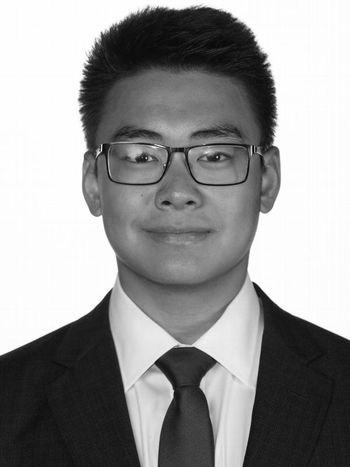UCCS secretly took photos of hundreds of students in facial recognition study
Over 1,700 photographs were taken of completely unaware college students for an ongoing study on facial recognition.
Facial recognition researchers obtained these photos at the University of Colorado, Colorado Springs (UCCS) without their permission, according to the Colorado Springs Independent. The study, which began in 2012, was conducted by Professor Terrance Boult, who had mounted a camera to a building in an area of heavy foot traffic to capture images of passing students.
The study’s mission was to test if the facial recognition algorithms could detect faces in longer distances and varying lighting. Once the images were collected, researchers sorted them by individual, with each collection of photos detailing a single person with a variety of outfits from separate days.
[RELATED: UCCS refuses to recognize Christian group, so the group sues]
This collection created a dataset called “UnConstrained College Students,” which is being used for training facial recognition algorithms and surveillance tools. The collection of this data was funded, at least in part, by U.S. military and intelligence agencies.
“The Brave New World, Aldous Huxley, is here,” Boult said, referencing Huxley’s well-known dystopian novel, according to the Independent.
As Boult pointed out, it is not technically illegal to take photos of people in public. The collection and use of the photos, however, has raised ethical concerns regarding privacy. Most of the subjects whose photographs were taken were unaware that they have been put in the dataset.
[RELATED: WINNING: Conservatives in Colorado claim victory after suing school]
“There is a lot of work to do to unwind the degradation of privacy over the last 10, 15 years,” said Adam Harvey, an independent American artist, reported the Independent. Harvey found a friend’s face being used to train facial recognition algorithms while putting together MegaPixels, an art project, that explores the ethics of facial recognition.
Others have commented on the issue of privacy with the study, as well.
“This is essentially normalizing Peeping Tom culture,” said David Maass, senior investigative researcher from the Electronic Frontier Foundation, according to the Independent.
[RELATED: Profs demand that Microsoft stop doing business with ICE]
Devon Johnson, who graduated from UCCS in spring 2019, also reacted in a statement to Campus Reform.
”It is absolutely a violation of privacy but unfortunately this is something not far out of UCCS’ modus operandi. The administration is totally set on doing the things that they want to do without any concern about the positive or negative impacts on the student body. I graduated this year and I could not have been more pleased to get away from the systematic abuses of power, and consistent disregard for student rights,” he said.
UCCS released a document, defending its rationale and the dataset. Titled, “Addressing concerns from the non research community,” UCCS addressed criticism of the study, saying that publications in the news have many factual errors, which are ultimately responsible for raising doubt in the minds of “common people.”
The statement emphasizes that the dataset does not record names or identifiers for each photo taken. Individuals can also have their face removed from the recognition software per request, but “since the dataset is hard and the technology isn’t so advanced, a face recognition software won’t be able to remove all your pictures.”
Follow the author of this article on Twitter: @ethanycai

